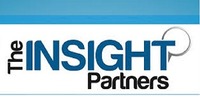In the dynamic landscape of Information Technology (IT), professionals are constantly seeking ways to enhance their skills and stay relevant in a rapidly evolving industry. One certification that has gained prominence over the years is the Information Technology Infrastructure Library (ITIL) certification. ITIL is a set of best practices for IT service management (ITSM) that focuses on aligning IT services with the needs of the business. But how useful is an ITIL certification, and is it worth your time?
Understanding ITIL Certification
Before delving into the value of an ITIL certification, it’s essential to grasp what ITIL entails. Developed by the UK government’s Central Computer and Telecommunications Agency (CCTA) in the 1980s, ITIL has evolved into a comprehensive framework for IT service management. The framework consists of a set of practices and processes for ITSM, with a primary focus on improving the efficiency and effectiveness of IT services.
An ITIL certification typically involves multiple levels, each building upon the previous one. The Foundation level provides a fundamental understanding of ITIL concepts, while higher levels such as Practitioner, Intermediate, Expert, and Master delve into more advanced topics and management strategies. Individuals pursuing ITIL certification gain insights into service strategy, design, transition, operation, and continual service improvement.
Advantages of ITIL Certification
1. Global Recognition and Standardization:
ITIL is recognized worldwide as a leading framework for ITSM. Many organizations, both in the public and private sectors, adopt ITIL practices to streamline their IT operations. Holding an ITIL certification demonstrates to employers that you possess a standardized set of skills and knowledge in IT service management, making you a valuable asset in a global job market.
2. Enhanced Career Opportunities:
ITIL certification can open doors to a wide range of career opportunities. As organizations prioritize the adoption of ITIL practices, certified professionals are in demand for roles such as IT service manager, service desk manager, IT consultant, and more. The certification serves as a differentiator in a competitive job market, giving certified individuals a competitive edge over their non-certified counterparts.
3. Improved IT Service Management Skills:
The core objective of ITIL is to enhance IT service management. Individuals who undergo ITIL training and certification gain a comprehensive understanding of best practices for managing IT services throughout their lifecycle. This knowledge empowers professionals to contribute to the development and implementation of efficient ITSM processes within their organizations, leading to improved service delivery.
4. Alignment with Business Objectives:
ITIL emphasizes the alignment of IT services with the strategic goals and objectives of the business. By obtaining an ITIL certification, professionals learn how to ensure that IT services contribute to the overall success of the organization. This alignment is crucial for organizations looking to leverage IT as a strategic asset rather than just a support function.
5. Continuous Learning and Adaptation:
The ITIL framework evolves to address the changing needs of the IT industry. Holding an ITIL certification implies a commitment to continuous learning and staying abreast of industry best practices. This adaptability is invaluable in an industry where technology and methodologies are in a constant state of flux.
Considerations Before Pursuing ITIL Certification
While the benefits of ITIL certification are substantial, it’s essential to consider certain factors before deciding to pursue it.
1. Industry Relevance:
The relevance of ITIL certification can vary depending on the industry and the specific needs of an organization. Some industries may prioritize other certifications or frameworks, such as DevOps or Agile, over ITIL. Prospective candidates should assess the industry trends and the alignment of ITIL with the specific requirements of their target roles.
2. Experience and Background:
ITIL certifications are designed for professionals at different stages of their careers. While the Foundation level is suitable for beginners, higher levels may require a certain level of experience in IT service management. Individuals should evaluate their background and experience to determine the most appropriate level of ITIL certification.
3. Organizational Adoption:
The value of ITIL certification is often closely tied to the extent of its adoption within an organization. If an organization follows ITIL practices, the certification is likely to be highly valued. However, in organizations that prioritize alternative methodologies, the impact of ITIL certification may be limited.
4. Cost and Time Investment:
Pursuing an ITIL certification involves both time and financial commitments. Individuals should weigh the costs of training, study materials, and examination fees against the potential benefits. It’s essential to consider whether the investment aligns with one’s career goals and the expected return on investment.
Conclusion
In conclusion, the value of an ITIL certification is significant for individuals seeking to advance their careers in IT service management. The global recognition, enhanced career opportunities, improved IT service management skills, alignment with business objectives, and a commitment to continuous learning make ITIL certification a worthwhile pursuit for many professionals.
However, it’s crucial to approach the decision with careful consideration of industry trends, personal career goals, and the specific needs of potential employers. While ITIL certification can be a powerful asset, it may not be the ideal choice for everyone. Ultimately, the decision to pursue ITIL certification should align with an individual’s career aspirations and contribute to their professional development in the ever-evolving field of Information Technology.






